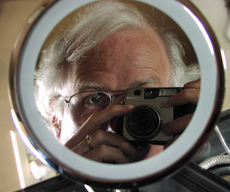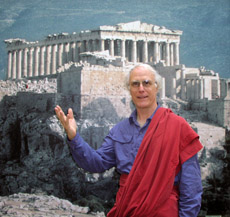David Kolb
I was born in Brooklyn, NY, and lived in eight houses in four states before I was six years old. At that point we moved to Garden City, NY, where I lived until I was eighteen. After training with the Jesuits, and a Bachelor and Masters degree from Fordham University, and a short stint in the city planning office in Baltimore, I studied for a PhD in philosophy at Yale. I taught philosophy at the University of Chicago, then became chair of the philosophy department at Bates College in Maine. During my time at Bates I taught for a year at Nanzan and Aichi Kenritsu Universities in Japan, and traveled there other times leading groups of Bates students. In 2006 I retired from Bates and moved from Maine to Oregon, hoping to find more time for writing and lecturing, and for travel and experience.
Almost everything I havewritten touches on the relation between modernity and tradition. I have published essays on philosophical topics and the history of philosophy, especially about notions of unity in self, society, and world. I have written most about Hegel and nineteenth and twentieth century German philosophy. My first book was The Critique of Pure Modernity: Hegel, Heidegger and After (a comparison of Hegel and Heidegger and their views on modernity). It was recently published in a Chinese translation. I also edited a book of studies of Hegel's philosophy of religion.
I realized after writing my first book that architecture and urbanism provided a wonderful laboratory to investigate issues of continuity and rupture in modernity. My next book was Postmodern Sophistications (a discussion of the role of history and context in philosophy and architecture). It was followed by a variety of essays and lectures.
The third direction in my research developed from an interest in how philosophy and scholarly research might relate to hypertext and web writing, I wrote Socrates in the Labyrinth (a collection of hypertext essays about non-linear writing in philosophy), and a number of other essays in prose and in hypertext about the possibilities of this twisty mode of writing.
These three directions come together in this present text.
My web page (dkolb.org) includes links to to dkolb.org . . .

